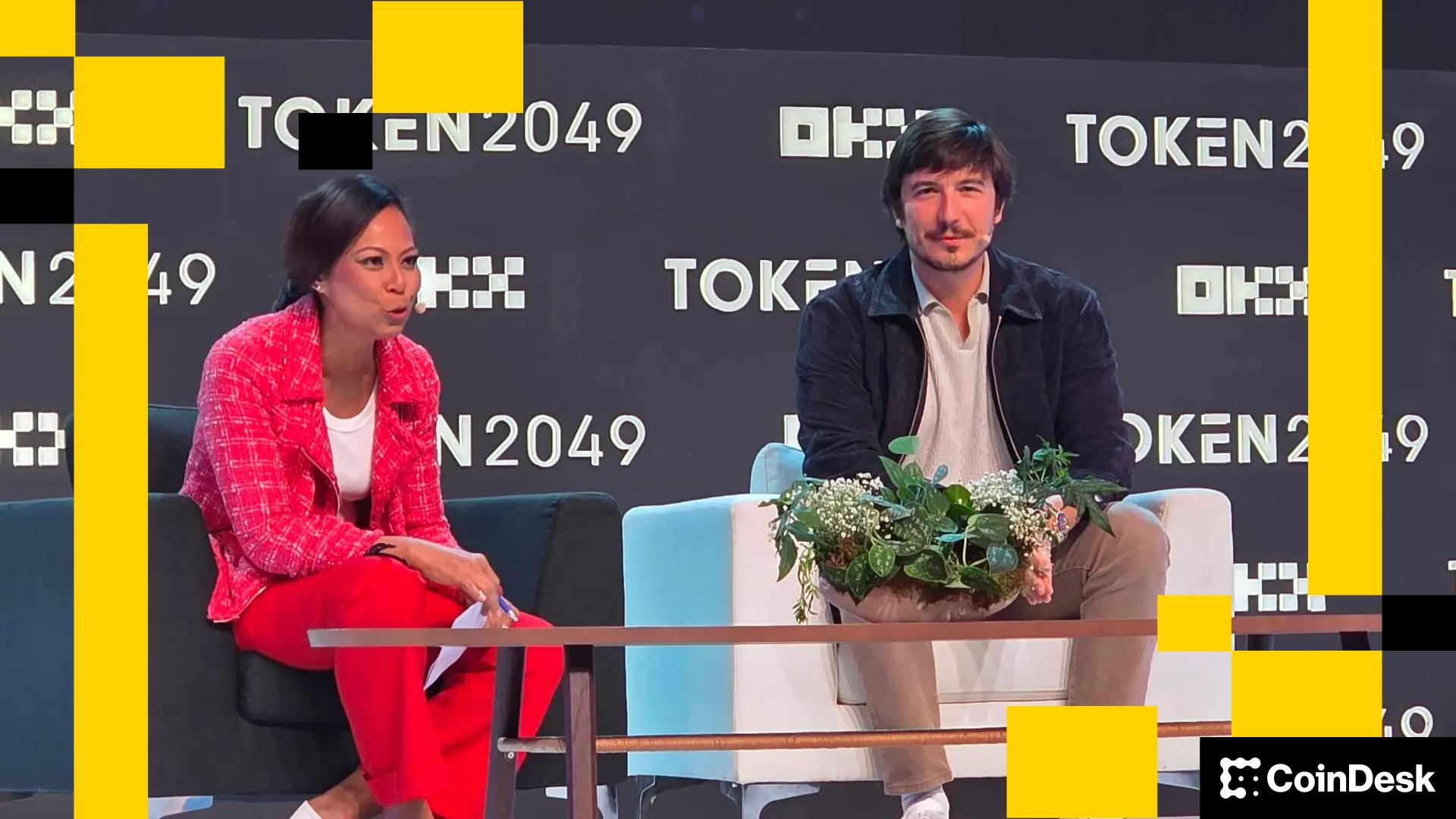SINGAPORE — The most important story in crypto right now is tokenization and it’s coming fast to disrupt traditional finance, according to Robinhood CEO Vlad Tenev.
Tenev told the crowd at the Token2049 conference in Singapore that tokenization is a “freight train” barreling toward the heart of traditional finance.
“Crypto and traditional finance have been living in separate worlds, but they’ll fully merge. In the future, everything will be on-chain in some form, and the distinction will disappear,” he said.
With Robinhood now offering tokenized stocks in Europe as well as private shares in some of the hottest non-public startups like OpenAI, the firm is betting big on a future where assets trade 24/7, on-chain, and globally.
“In the same way that stablecoins have become the default way to get digital access to dollars, tokenized stocks will become the default way for people outside the U.S. to get exposure to American equities,” Tenev said on stage. “That’s why we launched our stock tokens in Europe first, it’s the future of how global investors will hold U.S. assets.”
Even though many in the crypto industry have praised the direction the U.S. is going on digital asset policy, Tenev said the country needs to play regulatory catch-up to Europe.
There’s no urgency to change things – such as creating regulations to facilitate 24/7 trading of tokenized stocks – because the current system works well enough already. Tenev compared it to the lack of high-speed trains in the U.S., something ubiquitous in Europe and Asia.
“The biggest challenge in the U.S. is that the financial system basically works. It’s why we don’t have bullet trains — medium-speed trains get you there well enough,” he said. “So the incremental effort to move to fully tokenized will just take longer.”
Tokenizing real estate
Next up for Robinhood is tokenizing real estate.
Tenev told the crowd that tokenizing property is “mechanically” no different from tokenizing a private company, such as SpaceX or OpenAI: you place the assets into a company structure and then issue tokens against it.
While OpenAI called the move to tokenize its private shares “unauthorized” and crypto lawyers that spoke to CoinDesk said the move walked a legal tightrope, Tenev dismissed the controversy as part of a broader regulatory lag, arguing that the main hurdles aren’t technical but legal.
Europe is already moving ahead, he said, while the U.S. will likely trail, but he framed real estate as the next logical step in Robinhood’s tokenization push — an asset class that could one day be traded as easily as a stock or stablecoin.
“Eventually, it’s going to eat the entire financial system,” Tenev said.
Discover more from Stayupdated.co.uk
Subscribe to get the latest posts sent to your email.
